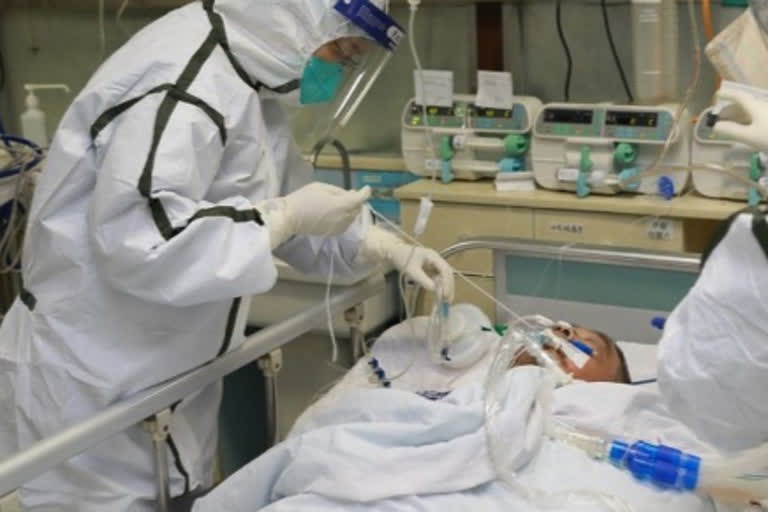New Delhi: An ICMR study has found that a COVID-19 patient can infect 406 people in 30 days if preventive measures such as lockdown and social distancing are not implemented, the Union Health Ministry said on Tuesday.
With preventive measures in place, the possibility of the infection can be reduced to an average of just two-and-a-half persons per patient in the same period, Joint Secretary in the Ministry of Health Lav Agarwal said.
Referring to the Indian Council of Medical Research (ICMR) study, Agarwal said the current ''R0'' or R nought for the coronavirus infection is somewhere between 1.5 and 4.
''R0'' is a mathematical term that indicates how contagious an infectious disease is. It tells the average number of people who will catch a disease from one infected person.
"If we take the ''R0'' to be 2.5 then one positive person can infect 406 people in 30 days, if the lockdown and social distancing measures are not in place, but if social exposure is reduced by 75 per cent then that one sick person will only be able to infect only 2.5 persons," Agarwal said, highlighting the importance of the ongoing 21-day lockdown and social distancing.
Read: Also Read: ICMR sets new protocol for rapid antibody test to detect COVID-19 in hotspot areas
He appealed to the people to adopt social distancing and follow the lockdown order, saying this is a very important intervention in terms of coronavirus management.
"Hence, again request you to follow social distancing, it is a social vaccine in management of COVID-19," he said.
Responding to a query on speculations on social media regarding the extension of the nationwide lockdown, Agarwal said, "Whenever a decision is taken, it will be informed. Till a decision is officially communicated, please refrain from speculation."
The joint secretary said that they have classified hospitals and facilities for the management of COVID-19 patients in three categories.
Elaborating, he said mild and suspected cases will be kept in Dedicated COVID Care Centres which can be makeshift facilities or government or private facilities like schools, hostels, stadiums, hotels among others.
ICMR gears up to conduct 1 lakh test per day in worst COVID-19 scenario
"Then there will be Dedicated COVID Health Centres where a clinically moderate level of serious patients will be monitored and such facilities can be a full hospital or dedicated block in a hospital.
"Besides there will be dedicated COVID Hospitals which will provide comprehensive care to severe and critical cases. Again such facilities can be an entire hospital or a dedicated block and they should have fully equipped ICU facilities, ventilators and beds with oxygen support," he said.
About the containment measures implemented so far, he said cluster containment strategies and action plans for outbreaks, which are amenable to management, are producing required results in some areas like Agra, Gautam Budh Nagar, Pathanamthitta (Kerala), Bhilwara, East Delhi and Mumbai.
These strategies are also being adopted in other coronavirus-affected districts, he said.
He further said that under the concept of smart cities, technology was being used successfully in Pune, Surat, Bengaluru and Tumakuru for surveillance, monitoring quarantine facilities, tracking the health of suspected patients and their contacts, training and for predictive analysis using heat maps among others.
Also Read: ICMR sets new protocol for rapid antibody test to detect COVID-19 in hotspot areas
Head of Epidemiology and Communicable diseases at ICMR Raman R Gangakhedkar said that 17,006 tests have been conducted so far.
"11,795 tests were done yesterday, out of which 2,530 tests were done in the private sector," he said, adding 136 government labs are functioning in the country as of now and 59 private labs have been given approval for conducting tests for COVID-19.
Agarwal further said that the Health Ministry is in close coordination with the Ministry of Pharmaceuticals, proper matching has been done over the national requirement of hydroxychloroquine and added there is sufficient quantity of drugs for management for coronavirus in the country and as and when needed.
He also informed that Indian Railways has converted 2,500 coaches for 40,000 isolation beds. On an average, 375 coaches are being converted in a day. The work is being carried out at 133 locations in the country.
(With inputs from PTI)



